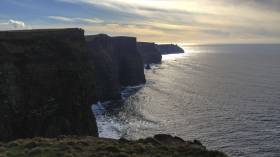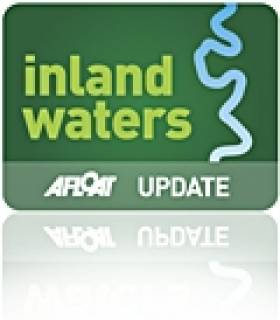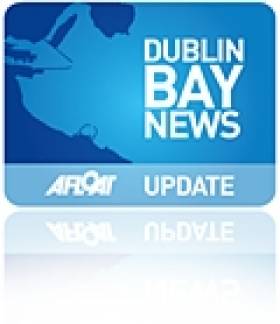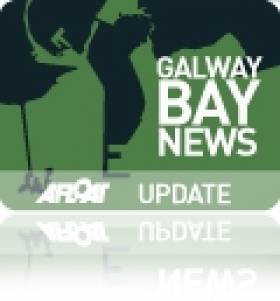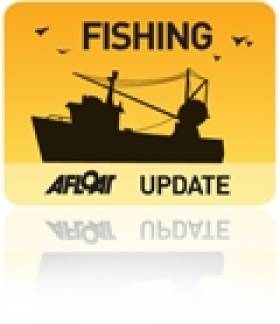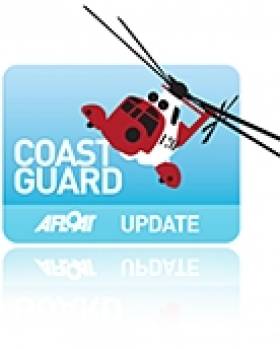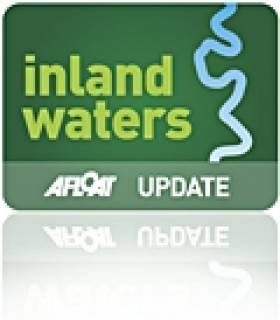Displaying items by tag: Public Consultation
Public Consultation On Ireland's Second Aarhus Convention Report
#Aarhus - Environment Minister Denis Naughten has launched the public consultation for a second implementation under the UN's Aarhus Convention on community participation in environmental issues.
Ratified in June 2012 after a long call by environmental and coastal community campaigners, the Convention on Access to Information, Public Participation in Decision-making and Access to Justice in Environmental Matters lays down a set of basic rules to promote citizens’ involvement in environmental matters and improve enforcement of environmental law.
Its provisions are broken down into three pillars: Access to Information on the Environment; Public Participation in Environmental Decision-making; and Access to Justice.
In what his department says is an effort to keep with the spirit of the convention, Minister Naughten has called on the public, including environmental NGOs, to submit comments on the implementation of the Aarhus Convention in Ireland prior to finalising Ireland's second National Implementation Report to the United Nations Economic Commission for Europe (UNECE).
The purpose of this consultation is to provide the UNECE as well as the Aarhus Convention Secretariat and Compliance Committee with the widest possible range of views and opinions on issues related to the implementation and promotion of the convention in Ireland.
The Department of Communications, Climate Action and Environment website has the draft report and details of the consultation, for which comments should be submitted no later than 5pm on Friday 28 October.
Public Consultation On National Strategy For Angling Development
#Angling - Minister for Natural Resources Joe McHugh has today (Monday 30 November) launched the public consultation on the National Strategy for Angling Development (NSAD).
Prepared by Inland Fisheries Ireland (IFI), the NSAD is the first comprehensive national framework for the development of Ireland's angling resource.
It is intended that the strategy will deliver a wide-ranging set of investments, innovations and promotions over the coming years.
This will ensure that Ireland's fish stocks and angling infrastructure are protected and enhanced for both their economic value and their recreational benefit to the communities and visitors they serve across the country.
“This strategy is necessary and timely to protect our wonderful inland fisheries and sea angling resources in their own right but also to safeguard and grow further the 11,350 jobs supported and €836 million contributed annually to Ireland’s economy by recreational angling," said Minister McHugh.
“These jobs and economic activity occur primarily in rural and peripheral areas of the country. The strategy supports the Government’s rural development, tourism and social inclusion objectives, and I urge all stakeholders to participate in the consultation process.”
IFI chief executive Dr Ciaran Byrne thanked all those who took part in the initial consultation process. “The inputs from stakeholders have been invaluable to Inland Fisheries Ireland in the preparation of the National Strategy for Angling Development. We look forward to working with all of our stakeholders in progressing the strategy.”
In accordance with Article 13(1)(b) of the European Communities (Environmental Assessment of Certain Plans and Programmes) Regulations 2004 (S.I. 435), as amended by the European Communities (Environmental Assessment of Certain Plans and Programmes)(Amendment) Regulations 2011, Inland Fisheries Ireland has prepared:
- A Strategic Environmental Assessment (SEA) Environmental Screening Report of the likely significant effects on the environment of implementing the Strategy, in accordance with Directive 2001/42/EC of the European Parliament and Council of 27 June 2001 on the assessment of the effects of certain plans and programmes on the environment as transposed into Irish law by the European Communities (Environmental Assessment of Certain Plans and Programmes) Regulations 2004 as amended.
- A Habitats Directive Screening Statement for Appropriate Assessment (AA), pursuant to Article 6 of Council Directive 92/43/EEC of 21 May 1992 on the conservation of natural habitats and of wild fauna and flora as transposed into Irish law by the European Communities (Birds and Natural Habitats) Regulations 2011.
The NSAD screening reports and supporting documents are available for viewing and downloading HERE; from IFI, 3044 Lake Drive, Citywest Business Campus, Dublin 24, D24 Y265; or at IFI offices countrywide (please see www.fisheriesireland.ie for addresses and maps).
Written submissions or observations should be sent to [email protected] or NSAD Consultation, 3044 Lake Drive, Citywest Business Campus, Dublin 24, D24 Y265 and must be received no later than Monday 4 January 2016.
For more information visit www.fisheriesireland.ie.
Waterways Ireland Public Consultation on Safeguarding Vulnerable Groups
#INLAND WATERWAYS - Waterways Ireland is currently undertaking two new public consultations on improving safety standards for children, the elderly and people with disabilities on our inland waterways.
Details for the consultation exercise on Safeguarding Vulnerable Groups Policy & Procedures and the Draft Disability Action Plan 2011-2013 are available from the Waterways Ireland website.
Comments may be submitted via e-mail to [email protected] or by post to Waterways Ireland, Strategy & Policy Section, 2 Sligo Road, Enniskillen, Co Fermanagh BT74 7JY.
The closing date for comments is Tuesday 21 February 2012.
Minister Launches Consultation on Harnessing Ireland's Ocean Wealth
#NEWS UPDATE - Minister for the Marine Simon Coveney has launched a public consultation process on harnessing the potential of Ireland's vast marine resources.
Our Ocean Wealth is calling for input into how Ireland can best capitalise on the trillion-euro global market for marine products and services, from seafood and tourism to shipping, oil and gas, renewable ocean energy and marine science.
Launching the consultation, Minister Coveney said: "We need to change the way we in Ireland think about the sea and look for new opportunities to harness the potential of our 220-million-acre marine resource.
"This government is determined to generate the momentum to drive forward a new era of sustainable economic development across the maritime sectors - we must avail of these opportunities to assist in our recovery. We want your help to shape our plan, to shape our future and to assist in our drive towards our nation's economic recovery."
The consultation process is a step towards developing an Integrated Marine Plan for Ireland intended to grow the percentage of GDP generated by the country's marine resource, which covers an area 10 times the size of Ireland's land mass.
The minister added: "We need an Integrated Marine Plan to harness our ocean wealth, get the environment right for investment and use the potential of our marine economy to create jobs in a sustainable manner."
The consultation phase will be open until 31 March with an aim to publish the Integrated Marine Plan during the summer. For more details visit www.ouroceanwealth.ie.
€220m for 9km Pipeline to Cut Dublin Bay Pollution
Dublin City Council is proposing a mammoth 9km sewage outfall pipe to help make Dublin Bay cleaner - at a cost of €220m.
Herald.ie reports that the 5m-wide pipe - longer than the Dublin Port Tunnel - would dump effluent from the Ringsend treatment plant far offshore, thereby avoiding pollution in the bay and sensitive areas such as Bull Island, which recently lost its EU Blue Flag status for Dollymount Strand.
Plans for the project, which DCC head of waste Pat Cronin described as the "greenest and most economic solution" will be open to public consultation in the near future, with a timetable for completion by 2015.
The pipeline and redeveloped treatment plant will be funded via the Department of the Environment's water services investment programme.
As reported previously on Afloat.ie, the Galway Harbour Company's €200 million scheme involves moving the port south onto 24 hectares of reclaimed land in deeper water to accommodate cruise liners, as well as a proposed rail link and marina expansion.
Following the public consultation earlier this year and subsequent discussions with An Bord Pleanála, the scheme has been deemed a 'strategic infrastructure development' and a planning application under this designation is expected to be lodged this month.
Fishing to be Reopened at Castlemaine Harbour
Minister for Natural Resources Pat Rabbitte has announced plans to reopen licensed commercial fishing in Castlemaine Harbour in Co Kerry, following the results of last year's pilot fishery.
“I am satisfied, based on scientific and fishery management advice... that it is safe to reopen this fishery under closely controlled conditions," said Minister Rabbitte. "The trial fishing conducted in the harbour last year establishes that this can be done without impinging on threatened stocks."
A statutory 30-day public consultation has now commenced on the required amendment to the Wild Salmon and Sea Trout Tagging Scheme 2011 to provide for the fishery's reopening.
"The consultation period will give those who disagree with that conclusion to put forward their views and I will pay close attention to what they say before reaching a final conclusion on the matter," the minister added.
Minister Rabbitte has also tasked Inland Fisheries Ireland with ensuring full enforcement of relevant quotas and conservation by-laws.
UK Coastguard Reforms Branded 'Shambles'
Britain's shadow transport secretary has branded a "shambles" plans to reform the UK coastguard service that could see the closure of Northern Ireland's only dedicated search and rescue base.
The Belfast Telegraph reports that Labour's Maria Eagle questioned Secretary of State Philip Hammond on the issue in the Commons on Thursday.
"Why does he not just abandon the ill-thought-through proposals, which will leave our coastline a more dangerous place?' she asked.
Hammond, however, dismissed Eagle's challenge as "opportunism", noting that proposals to reform services of the Maritime and Coastguard Agency (MCA) were first made by the previous Labour government.
As previously reported on Afloat.ie, British Prime Minister David Cameron has already promised a rethink on the plans to streamline the UK's network of coastguard stations.
The public consultation on the proposed cuts ended on Thursday.
Sailing Body Responds to Draft Waterways Bye-Laws
The Irish Sailing Association (ISA) says it sees no value registering small craft that launch from clubs and training centres on inland waterways. The sailing body comments come as part of a Public Consultation programme on proposed new Bye-laws for all seven Irish waterways. Waterways Ireland has commenced the first Phase of a review of bye-laws under its remit. Bye-laws facilitate the management of a waterway, clearly outlining the roles and responsibility of Waterways Ireland and all the people involved in using the navigation, whether for recreational or commercial purposes. The association says the new bye laws alos place an added administrative burden on volunteers when organising events. "The requirement to apply for permission to run every event on a weekly basis will create significant administrative workloads on already over burdened volunteers", it said. The full ISA submission is below:
General Observations
1. Definition of Craft Types
There are no fewer then 14 definitions describing different craft types referred to in the bye- laws. Many of the definitions do not adequately describe the type of craft they are referring to, and have definitions within definitions. It difficult to understand which byelaws are referring to which type of craft – this will lead to confusion and as a result non compliance.
For example: a. 'Pleasure Craft' includes personal watercraft and fast power craft'. Pleasure Craft would imply a craft used for pleasure purposes, and there are already definitions for personal watercraft and fast power craft described – so why duplicate?
b. 'Vessel' means every description of craft including non-displacement craft and sea planes but does not include a boat or personal water craft' A non displacement craft is included under the definition of 'craft' so why mention it? You also need to look up the definition for a 'boat' and 'personal watercraft' before you understand which types of craft are being referred to as a 'vessel'.
2. Insurance
We are fully behind the principal that every craft should have suitable insurance. However we believe this is a matter for the users, owners and organisations. We can see no good reason why Waterways Ireland need to be sent policies in 'original certificate form'. This puts the responsibility and hence the liability of adequate insurance onto Waterways Ireland and will require a significant bureaucratic overhead. It could easily be made an offence not to have insurance and leave it at that.
3. Duplication of Existing Legislation
Much of the content of the draft byelaws proposed is already covered under existing legislation. (eg the wearing of personal floatation devices, age limits for driving powered craft etc.). Duplication of this legislation within the bye laws will do nothing to encourage compliance, and will mean a revision of the byelaws every time there is a change in legislation.
4. Over Regulation/confusion
The draft byelaws as presented contain 32 pages of 'small print' regulations. Some of the terminology and definition used is legalistic and confusing. It will be a very difficult task to educate the waterways users as to their responsibilities towards the byelaws, and an even bigger task to enforce them.
There has been no mention of a plan for implementing the byelaws, and we would have concerns that Waterways Ireland do not have a plan or adequate resource to communicate sufficiently the detail of the byelaws, or to enforce compliance.
5. Safety
It has been shown time and time again that regulation used to manage activity on the water does little or nothing to improve safety standards unless there is sufficient resource to enforce it. The attempt within the bye laws to incorporate a 'one size fits all' set of regulations to manage activities on the waterways is inappropriate, unnecessary and will be impossible to enforce. As such it will lead to confusion and non compliance.
There are some 'bottle neck' areas of congestion, where more stringent control measures may be necessary in order to encourage responsible participation and enjoyment. We recommend a different set of regulations be developed for known trouble spots, leaving the majority of the waterways relatively unrestricted.
6. Link with existing Local Authority byelaws
In recent years, Local Authorities around the country have developed byelaws of their own to manage access to and activity on the waterways, harbours and beaches under their jurisdiction.
We are concerned that there appears to have been little consultation or coordination with local authorities who already have byelaws established, particularly counties which boarder Waterways Ireland navigation. This could potentially lead to one set of regulations applying whilst launching your craft from a local authority controlled slipway, whilst another set of regulations applying once under way on the water.
We strongly urge waterways Ireland to liaise with local authorities to ensure their byelaws are consistent with those already established.
Feedback on Specific Byelaws
(6) Registration The proposal set out in bye-law 6 needs a total revision.
a. Compulsory Registration
The ISA is not opposed to the principle of registration of vessels provided it is equitable, has a purpose (other than taxation) and is required only where necessary. Otherwise there will be a strong disincentive to register, and the cost of tracking down and seeking to make vessel owners compliant will exceed any possible benefit.
We do not see any value in the need for registering small craft that launch from clubs and training centres, which are under the control of and/or are participating in an organised activity.
b. ValidityPeriod
Where registration is required it is not sufficient to make it valid for a period to be decided by the Chief executive. A validity period should be clearly identified (5 years would seem appropriate) and communicated to all the keepers of registered craft.
c. Cost
Registration should not be seen as a revenue generator for Waterways Ireland. It should be administered at cost and fees set as such. Again this should not be at the whim of the Chief Executive.
d. Lettering
The proposal for all craft wishing to display their own print of the registration number to have 300mm high numbers (7)(b) port and starboard on the bow, and on the stern is completely ill-conceived. There is an assumption that the number issued by Waterways Ireland (7)(a) is the same size? For smaller craft it is simply not possible, and for larger craft will meet with huge opposition if it is implemented.
e. Insurance
We are fully behind the principal that every craft should have suitable insurance. This is a matter for the users and owners and we can see no good reason why WI need to
be sent this in 'original certificate form'. By checking an insurance policy Waterways Ireland is taking responsibility for ensuring all craft registered have adequate cover for any incident that they are involved with on the waterways. It could easily be made an offence not to have adequate insurance (putting the responsibility on the registered keeper) and leave it at that.
f. Visiting Craft
There are a number of craft that use the waterways occasionally when visiting the area. They are unlikely to have prior knowledge of the byelaws and often will not be in a position to apply for registration three weeks in advance. This will significantly restrict access, and/or encourage non compliance. Temporary visitors will need to be catered for.
g. On-LineRegistration
Waterways Ireland are proudly declaring the development of a 'computerised registration package', yet all registration applications must be submitted by hard copy 'snail mail'. This is not the modern way to do business.
h. Duplication of Registers
The ISA currently operates a Small Craft Register which is available on line and may be used to identify all types of craft. It may be has a five year validity and costs €15. We have the ability to process applications in a day. This is already being used by many local authorities that require permits to launch craft. We would welcome the opportunity to discuss the potential for combining the registers in order to help simplify registration system for the user.
(20) Zoning The ISA would ask Waterways Ireland to consult with us prior to implementing zoning, so we may help to ensure that congested areas are managed in a pro active way to encourage responsible participation, and will not cause confusion and/or unnecessarily restrict activity.
a. Restriction of Craft
Whilst we have no difficulty in 'Zoning' areas in order to pro actively manage use of the waterways in congested areas, it should be stressed that zoning may be required in congested areas in order to 'promote' responsible participation in activities. The current terminology used in the byelaws; 'restrict or prohibit craft from taking part' does not suggest Waterways Ireland is actively looking to promote activities on the waterways.
b. Consistent Markings
The ISA has been working with local authorities on implementing pro active management strategies for the management of beaches and harbours within their jurisdiction. The signage and buoyage for zoned areas need to be consistent with those used by local authorities and we would request that waterways Ireland consult with us prior to developing the infrastructure and management systems required for zoning.
(21) Commercial Operations
a. Voluntary Organisations
Byelaw 21 outlines the requirement to obtain permission to carry on any trade or business. It also mentions that there will be a charge levied in respect of this permission. There are a number of clubs and associations that organise training,
recreational and competitive events for which a charge is levied to the participants. This is not commercial activity, as the charge is to cover the costs of organising the said activity.
We believe it is not the intention of waterways Ireland that these clubs and associations will be charged for organising their activities, however this needs to be clarified.
b. Commercial Operators
The ISA has a number of accredited sailing schools and clubs that operate on the inland waterways. These organisations attract visitors and tourism to the area, whilst at the same time improving safety standards on the waterways.
There should be no charge levied for approved training activity that is carried out by an organisation that is accredited by a national authority and/or has been approved by Waterways Ireland.
(8) Owners, Masters and Crew of Craft
Paragraph (8). Carrying an anchor. It is not general practice in racing yachts to have an anchor stowed in such a position as 'to enable them to be dropped or weighed quickly'. This may incur a €150 fine depending on the interpretation of 'quickly'. This paragraph needs rethinking.
(25) Placing of objects
Clubs and training centres use temporary buoys to mark race courses, training areas etc. It is not reasonable to expect these organisations to apply for permission in writing every time they are involved in organised activity afloat.
(28) Miscellaneous Prohibitions
We note that there does not seem to be any prohibition on the causing of a nuisance for example by noise of engine, generator etc. in a public harbour to other users or any particular restriction on causing such annoyance. We believe such a prohibition should exist.
(32) Events If established organisations are forced to apply for permission for every event they organise their activities will not be sustainable.
a. Notification and Permission
An 'Event' is described as a 'regatta, race or any organised gathering of craft or people for the purpose of competition or display'.
Events in ISA organisations take place on a weekly and sometimes daily basis. They are often weather dependent and organised at short notice. It is unreasonable to expect clubs and associations to apply for permission organise every event, as this will severely restrict their ability to operate.
b. Insurance
ISA Clubs and Associations are fully aware of their responsibilities towards their liability for the organising of events, and carry insurance to cover all of their activities.
Should Waterways Ireland insist on receiving proof of insurance the liability may well be passed on to Waterways Ireland in the event the cover proves to be insufficient.
We recommend that paragraph 32. (6) (b) be removed.
c. Administration
ISA organisations are in the main run by volunteers. The requirement to apply for permission to run every event on a weekly basis will create significant administrative workloads on already over burdened volunteers.
We believe the intent of this bye law was not to restrict the activities of established clubs that organise regular events, and we recommend that for established clubs, training centres and associations affiliated to a recognised authority, a prior agreement be made between Waterways Ireland and the organisation concerned, to allow for the organising of events within agreed parameters without the need to apply for permission.


























